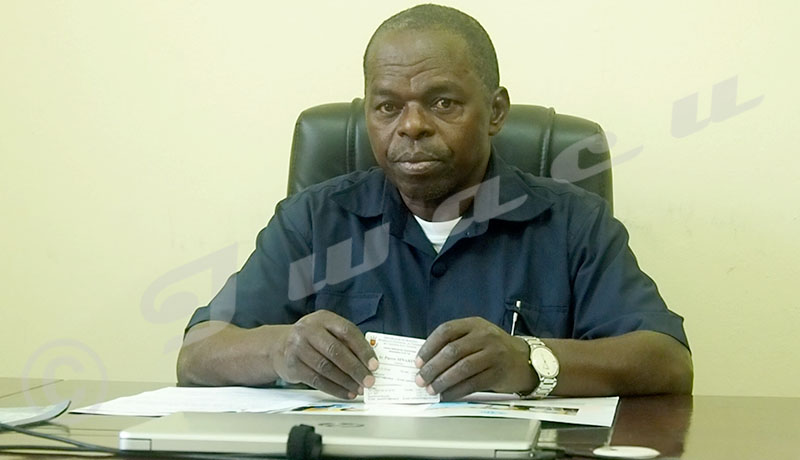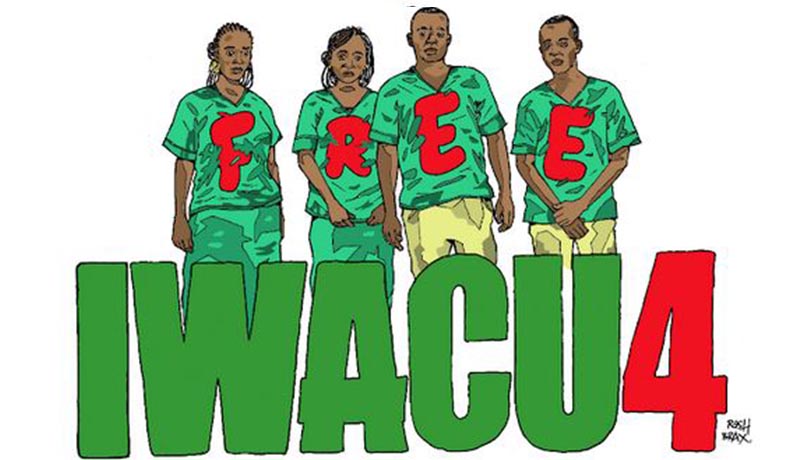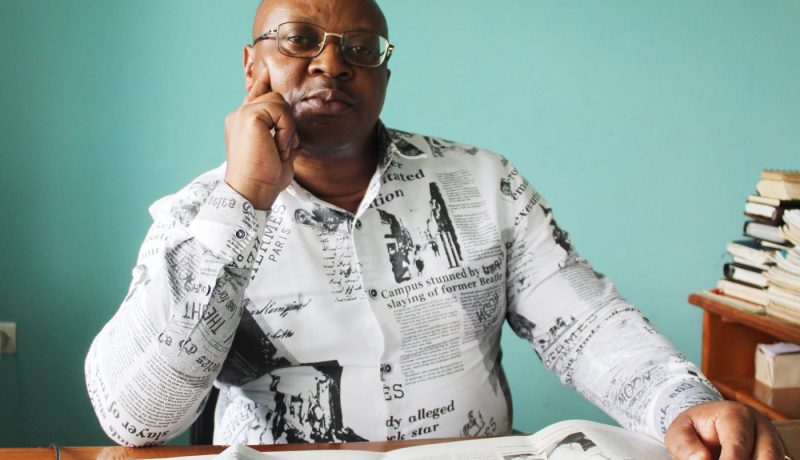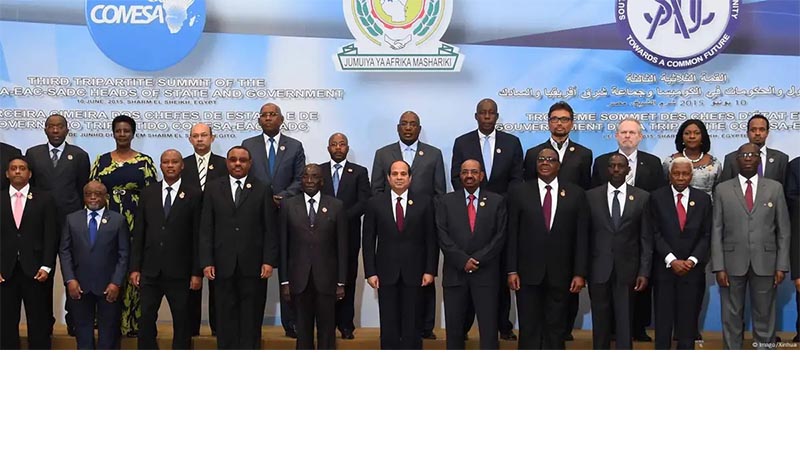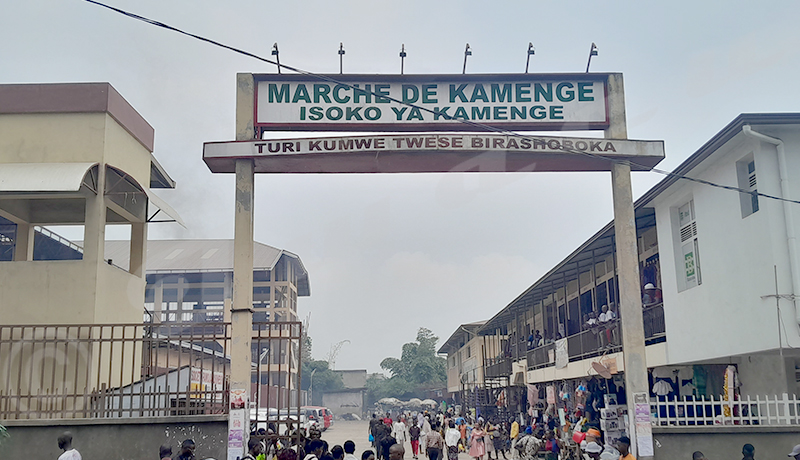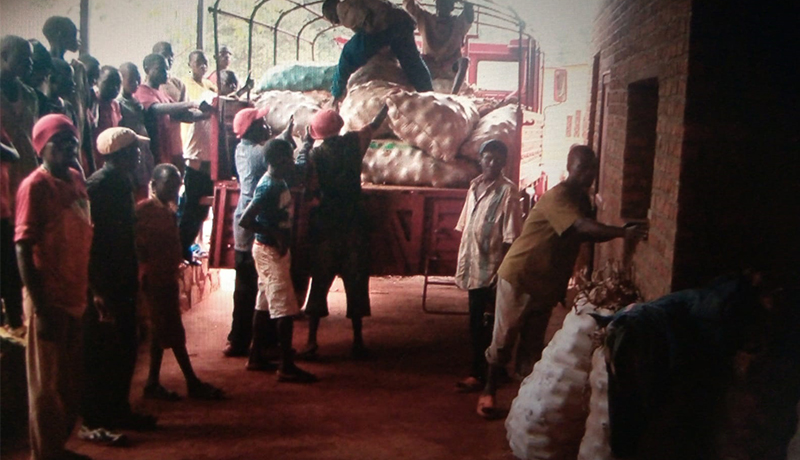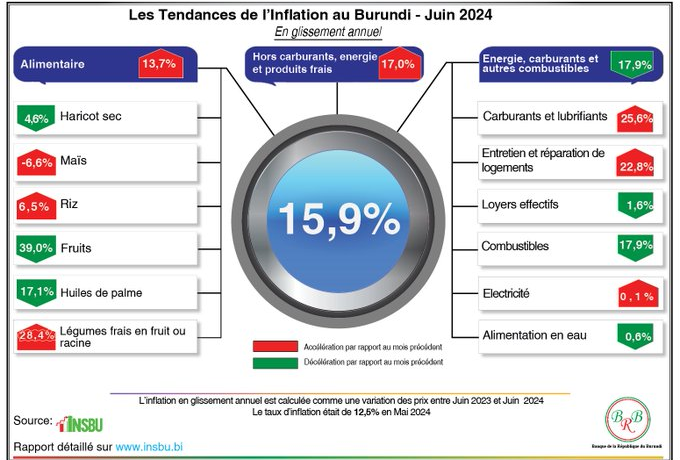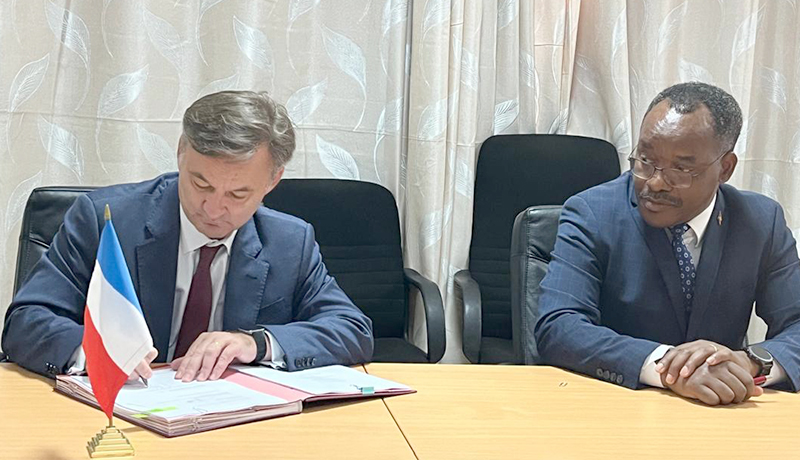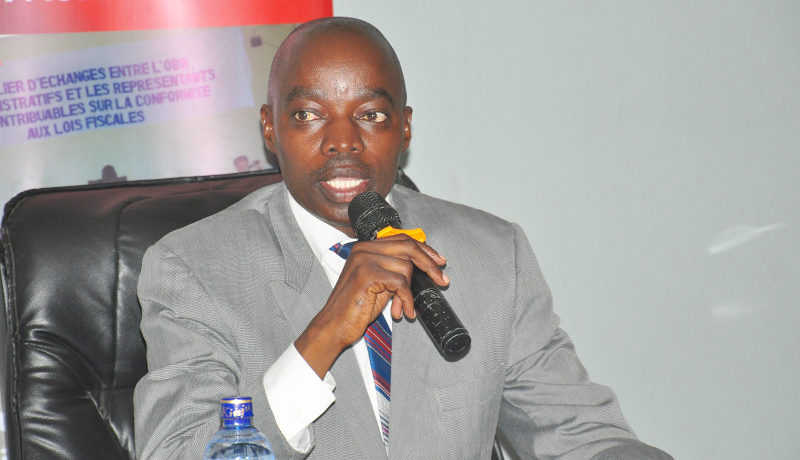In 2020, CNTA received a donation of laboratory equipment from European Union through MarkUp project. Unfortunately, processing unit managers are not always informed of the CNTA activities.
In addition to the Burundi Bureau of Standards and Quality Control (BBN), European Union in Burundi has intervened for laboratories of CNTA, the National Center for Food Technology.
Worth $122,295, the donation of reagents, materials and equipment to the biochemistry laboratory granted by MarkUp project allows CNTA to control food products quality, especially fruits and vegetables as well as coffee and tea to facilitate their export. This equipment is used for the analysis of mycotoxins and other chemical contaminants that can affect food products quality.
Despite the equipment granted to the CNTA laboratories to increase and strengthen analyses, its beneficiaries seem to be unaware of its services.
“I started working with CNTA last month,” testifies Eloge Niyomwungere, owner of a pepper manufacturing unit, operating in Burundi since 2021.
He explains that he prefers to go for analyzes at BBN. According to him, prices are cheaper at BBN than at CNTA: “Last time, I did an analysis at BBN at BIF 77, 000, but at CNTA, I was told that the analysis is done at BIF 135,000.”
Totahara factory, flour manufacturer, appreciates a close collaboration with CNTA: “They give us advice, show us how processing is done and errors to correct. They also invite us to attend trainings in which we learn a lot about processing technologies.”
However, she regrets that there is a lack of follow-up from this center. “In 2022, CNTA visited us twice, but it was within the framework of another program of the French embassy,” indicates Christella Ndayishimiye, owner of this factory. In 2020, CNTA made only one visit to her factory.
The existence of new CNTA laboratory equipment remains unknown to managers of some processing factories.
“I did not know that CNTA has new devices, » says the owner of the Totahara factory. For her, this equipment will bring added value to the analyzes carried out by CNTA.
CNTA appreciates the support of MarkUp project
“The donation of materials, equipment and reagents received from MarkUp contributed enormously and strengthened the capacity of our laboratories to perform many analyzes that we could not do before,” says Pierre Sinarinzi, Director General of National Food Technology Center (CNTA).
Through MarkUp project, he adds, we also benefited from training by experts. According to him, these trainings enabled laboratory technicians to improve their skills and to be able to perform analyzes that were not done in the past.
For example, he explains that before receiving this equipment, it was difficult for them to analyze aflatoxins found in cereals: “The techniques for analyzing these toxins are quite complex and thanks to this equipment and training, we will soon be able to control aflatoxins in cereals.”
He appreciates the fact that MarkUp project continues to support CNTA activities: “We have a very good appreciation of the MarkUp project services. They especially continue to provide training and support to our laboratories in the framework of an accreditation process.”
CNTA Director General admires that the accreditation process for their laboratories is well advanced. According to him, accreditation will allow CNTA laboratories to be recognized at the national and international level. Thus, Burundian producers will be able to easily export their agri-food products, he argues.
According to him, CNTA laboratories are currently well equipped: “This equipment granted by European Union makes it possible to carry out analyzes of all kinds to check the quality of products. We complete BBN which is in charge of certification. At the moment, we have a great work capacity.”
Challenges still remain
According CNTA Director General, some processing factories managers are reluctant to the center’s services as they do not want to pay for laboratory analyses: “Prices are not very high. However, some economic operators do not like to pay. They should know that quality control of their products and the establishment of an efficient production system allow them to have quality products that are competitive on the national and international market.”
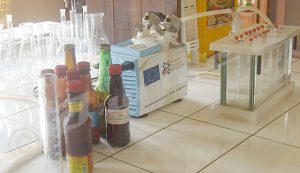
He recalls that fees for chemicals used in laboratory analyzes come from abroad and are expensive: “We have fixed tariffs that only allow our laboratories to meet small operating needs. Prices do not represent the real cost of the analyses.”
According to him, equipment provided by MarkUp project helped CNTA reduce costs of analyzes, even if beneficiaries of its services still find them high.
For him, it is necessary to sensitize economic operators so that they accept that support costs are part of investment ones.
Pierre Sinarinzi also recalls that agri-food processing units should contact CNTA: “Our mission is to support them and encourage them to adopt good processing practices and produce good quality products. They have to accept our support.”
According to him, CNTA must closely follow processing activities in a technical way, assess the equipment and the staff for the production system to be reliable and guarantee the manufacture of good quality products. He calls on all those who work in the transformation field to contact CNTA so that it can accompany them.
Over the past two years, CNTA has helped approximately 40 processing units supported by WFP and other NGOs: “We have supported units belonging to associations and cooperatives that have benefited from the support of partners who can cover the costs of support.”
Despite the acquisition of quality equipment and materials, CNTA director general deplores the lack of personnel: “The equipment is sufficient. The problem is that we are not able to fully exploit them due to a lack of qualified personnel.”
CNTA laboratories have about ten employees: “We need about twenty technical managers. We plan to strengthen the research component of the center to further develop technologies that could be disseminated across the country.”
Pierre Sinarinzi regrets that CNTA works on the basis of old texts, which means that working conditions are not attractive and which sometimes leads to the departure of technicians.
He calls on the country’s high authorities to strengthen and revitalize this center so that it can be effective in meeting the country’s needs.
As a reminder, CNTA has two laboratories: biochemistry laboratory and microbiology laboratory. The equipment, materials and reagents granted by MarkUp project are for the biochemistry laboratory. These are, among others, a fume hood (for handling odorous chemicals), an analytical balance, a centrifuge, a vortex mixer, a rotating mixer, a fridge and a freezer (for storing chemicals).
The Market Access Upgrade Program (MarkUp), designed jointly by European Union with East African Community General Secretariat, is a regional initiative that aims contributing to the East African Community economy growth.
In Burundi, its objective is to improve the national quality infrastructure in order to enable the country to comply with sanitary and phytosanitary measures.
Funded by European Union for an amount of €3.680 million, this program has particularly focused on compliance with quality standards and certification of the three national laboratories, namely those of BBN, ISABU and CNTA.
